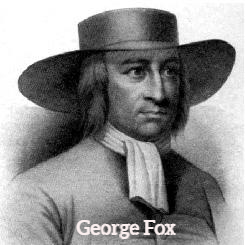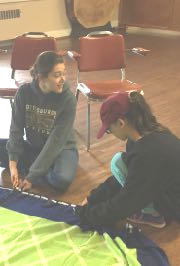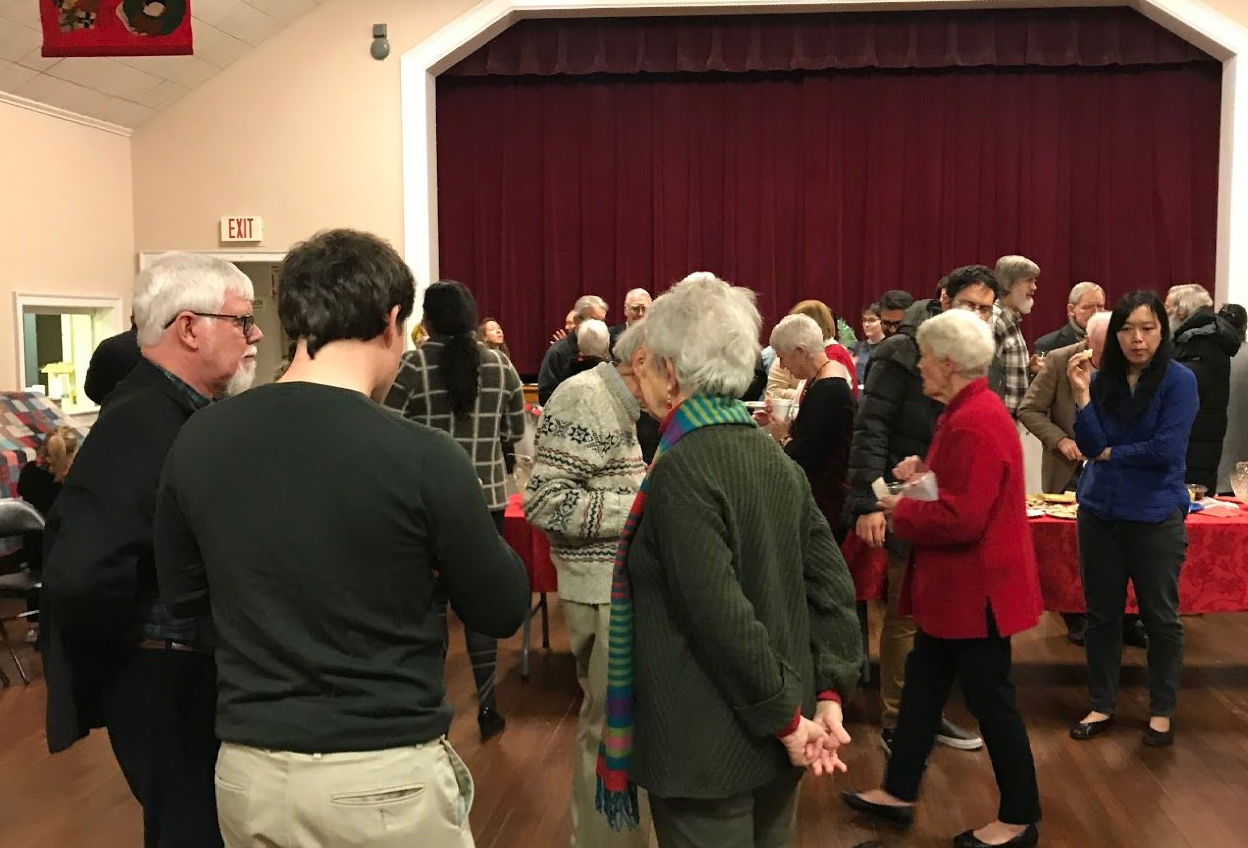The Religious Society of Friends came into being during the turmoil of 17th-century England. Both political and religious structures in English society had been torn asunder, and the people had grave concerns about what the future would hold for the world. The founder of what became the Society of Friends, George Fox (1624-1691), made a long and lonely search for religious truth.
In his early 20s, Fox was journeying around England, conversing with many to find himself. Family members wanted him to become a preacher, and many that he met placed pressures on him to convert to some kind of faith. Among his thoughts during this time, include










